Mishpatim 5782 – Is Your Emunah Complete?
L’ilui Nishmat Michael Ben Renee
Shiur presented in 5779

L’ilui Nishmat Michael Ben Renee
Shiur presented in 5779
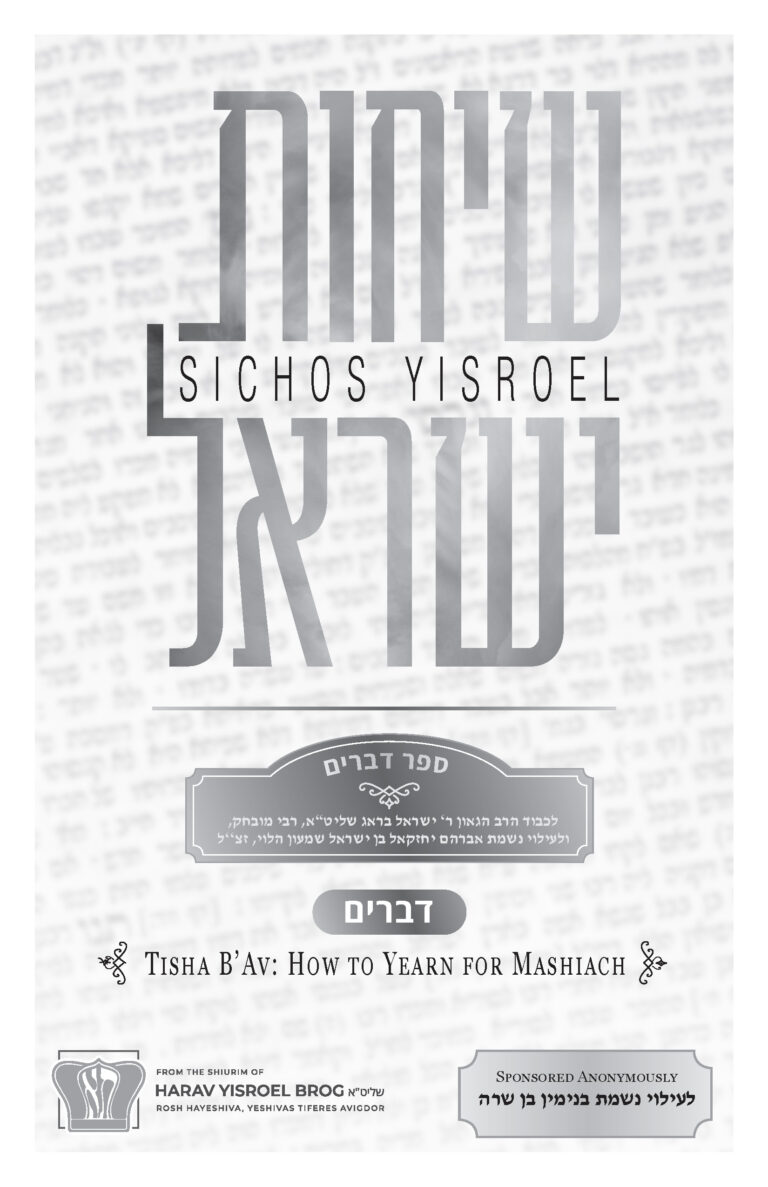
Tisha Ba’av is a day on which we have an appointed meeting, a moed, with Hakadosh Baruch Hu. Tisha Ba’av is a day of special tefillah, called kinnos. The way the moed is expressed is through the kinnos and by yearning for the Beis Hamikdash, and yearning to be taken out of galus. We have to analyze and understand that not all requests are uniform. Different requests require different formats. What is the format for asking for the geulah?
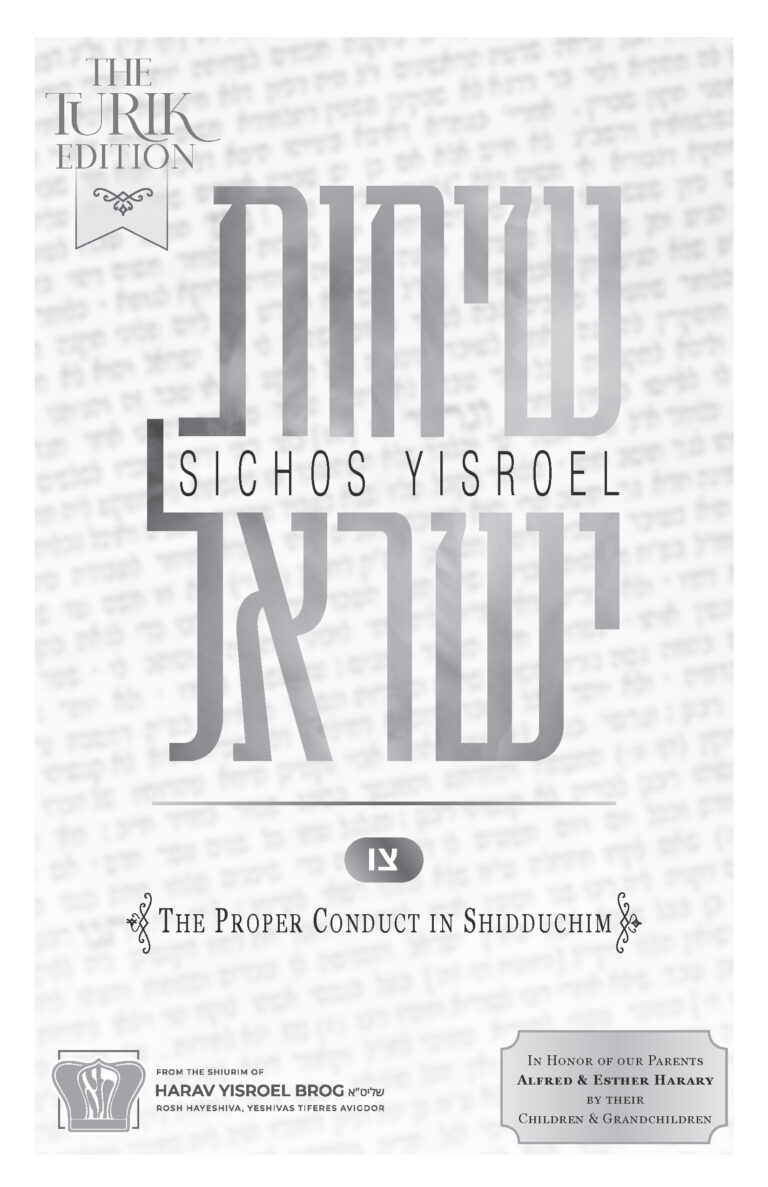
In Honor of our Parents Alfred & Esther Harary by their Children & Grandchildren Visit YTATorah.org Shiur presented in 5780
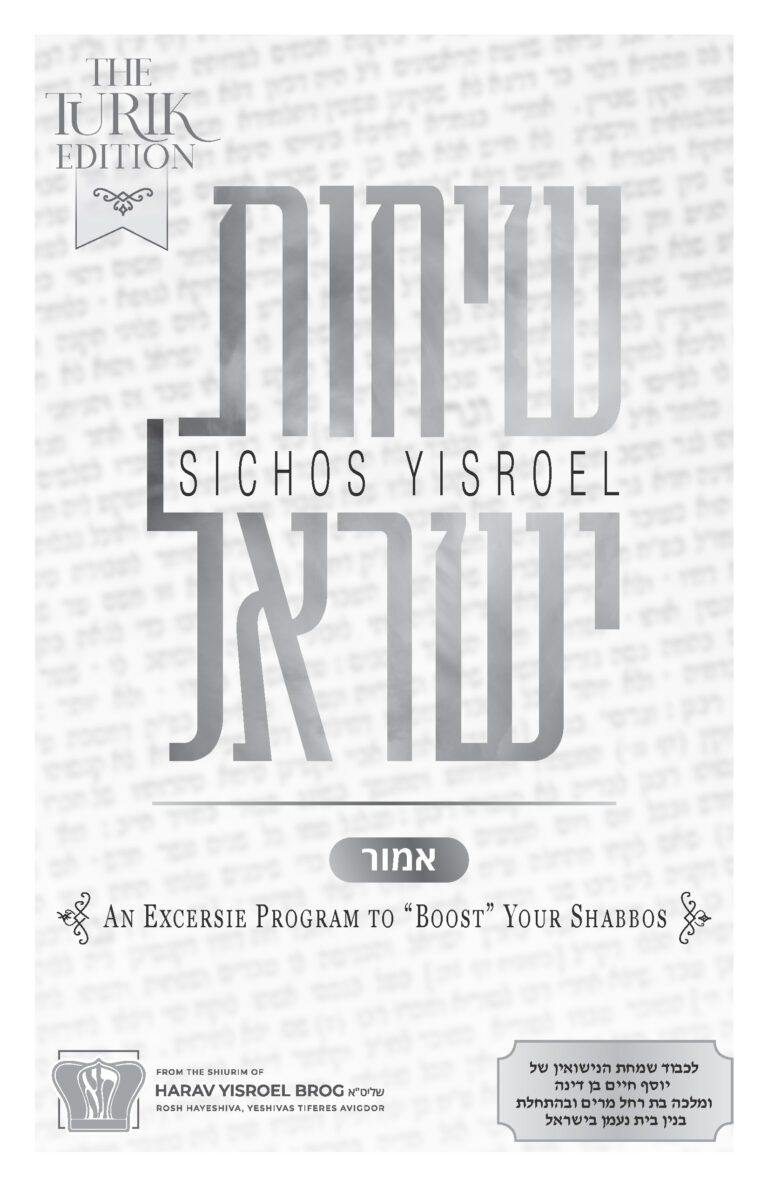
לכבוד שמחת הנישואין של יוסף חיים בן דינה ומלכה בת רחל מרים ובהתחלת בנין בית נעמן בישראל Visit YTATorah.org Shiur presented in 5781
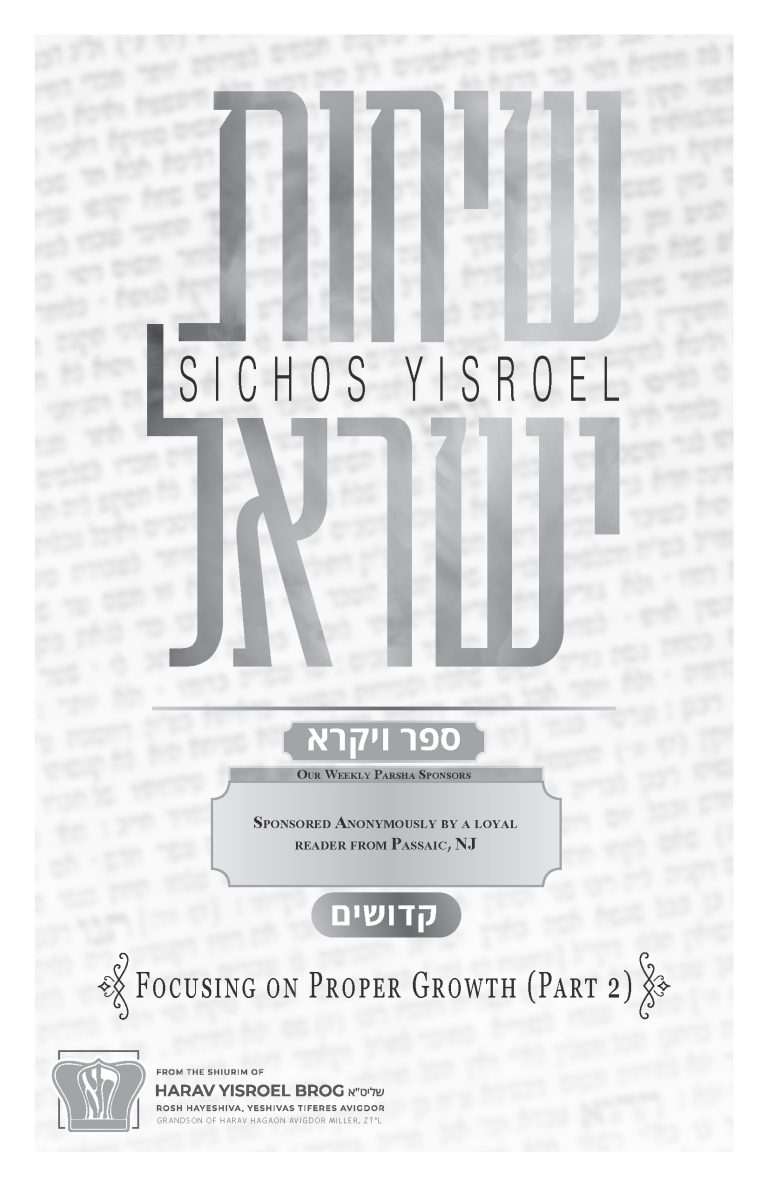
In this week’s parshah, it says “and Hashem spoke to Moshe, saying: ‘Speak to all of Bnei Yisroel…” (Vayikra 19:2). You have to know that this is a very rare introduction. There’s “speak to Bnei Yisroel” but “speak to all Bnei Yisroel” is very unique. Hashem wanted every single part of Klal Yisrael to be involved in this parshah. Rashi points out that for this parashah Klal Yisrael was commanded to come together and to hear directly what Moshe Rabeinu had to say.
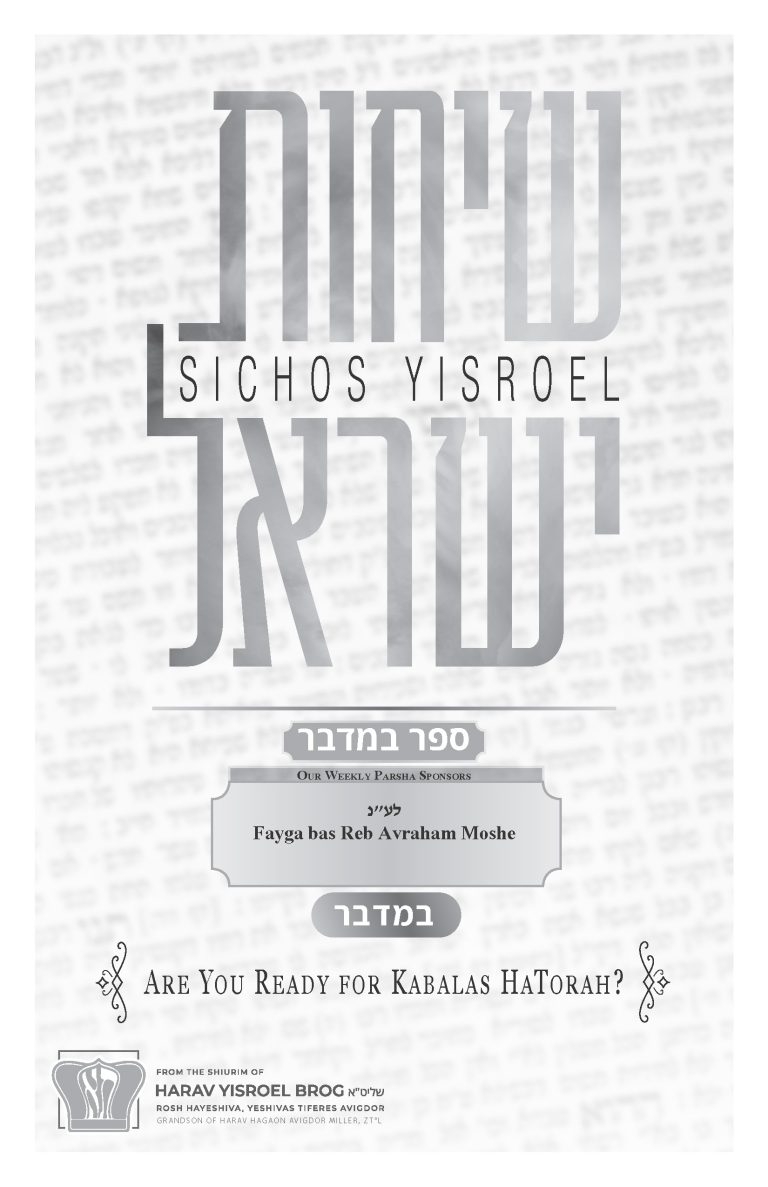
Since the Torah on Har Sinai required a kabalas haTorah, it’s important for us to think about whether we are ready for a kabalas haTorah. Rav Chaim Volozhiner writes that kabalas haTorah is not something you do once a year. You should do it every time you learn. A person should be mekabel Torah before he learns. He should think to himself, Na’aseh v’nishma.
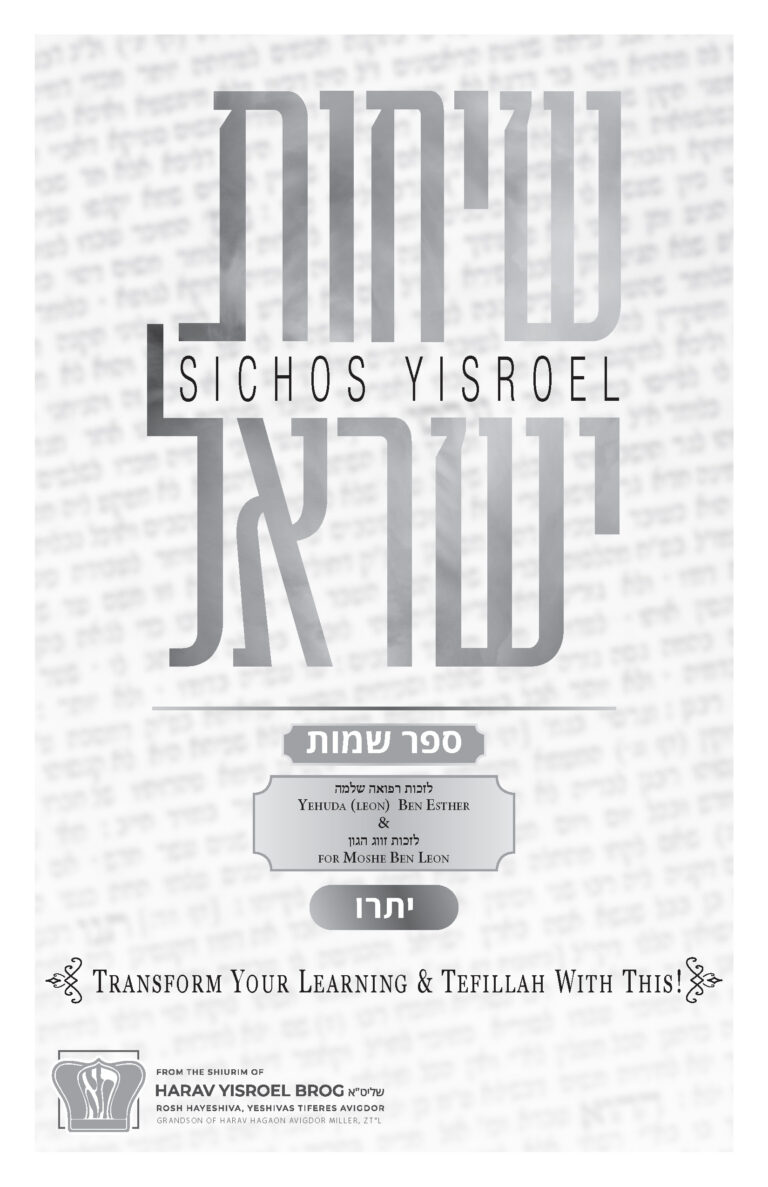
The subject we’d like to discuss today is an important one because many people pose the following question. The Torah says: I created an evil inclination, and I created Torah as its antidote (Kiddushin 30b). So that means to say that the antidote, the counterforce for the yetzer hara, is Torah.